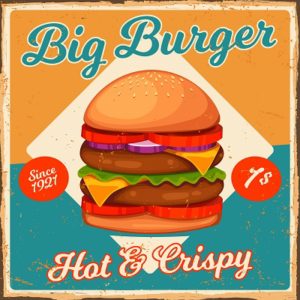 Fatigue is strongly related to what you eat, how much you eat, and the timing of meals. There are foods that can make you fatigued and foods that energize you. For example, foods high in tryptophan, like turkey, can cause you to feel fatigued and sleepy. Other foods can improve your nutrition so that you feel immense energy instead of fatigue.
Fatigue is strongly related to what you eat, how much you eat, and the timing of meals. There are foods that can make you fatigued and foods that energize you. For example, foods high in tryptophan, like turkey, can cause you to feel fatigued and sleepy. Other foods can improve your nutrition so that you feel immense energy instead of fatigue.
Your body runs off fuel that is provided by the food you eat. Cells that support high energy require carbohydrates, healthy enzymes, proteins, vitamins, minerals and healthy fats in order to run properly.
Your body is less fatigued if you eat a healthy diet, and avoid foods that are processed or too high in sugar and fat.
Fatigue as it Relates to Meal Size
The timing of your meals can affect your level of fatigue. Have you ever felt fatigued or dragged out after eating an especially large lunch or supper? You feel this way because the body has changed its focus and is expending energy in order to digest the food you just ate and has no more energy left for other things and that is why you feel so tired.
In order to avoid feeling this way after meals, you should eat smaller meal portions more frequently and spaced out over the course of your day. This fuels your body on a regular basis and is a good weight loss method as well.
Processed Foods and Fatigue
Things like fast food items are designed for comfort while eating them. Unfortunately, greasy fast food only staves of hunger and does not fight fatigue. Other processed foods, including high sodium canned foods, sugary candy, packaged foods, meals in a box and meat that has already been cooked at the factory are filled with preservatives and salt.
These and other aspects of processed foods will make you fatigued after eating them and never provide the body the nutrients it needs.
On the other hand, fresh whole foods do provide all the essential nutrients your body needs and nothing it does not. Vegetables, lean unprocessed meats, wild and brown rice and fruit in moderation are your best choices for high energy packed meals.
Caffeine and Fatigue
While caffeine is technically a stimulant, you feel only a temporary jolt of energy, followed by a crash in which you are greatly fatigued. The less caffeine you consume, the better you will feel in the long run. If you can’t avoid caffeine, just drink plain black coffee. The caffeine in sodas and energy drinks is offset by the sugar and miscellaneous substances found in these foods. These can only make you more tired.
Proteins and Fatigue
Select lean cuts of meat with less saturated fats. Chicken, and fish are good choices, and tuna with tomato and cucumber slices makes a great lunch. Eating fish is especially helpful because it contains omega 3 fatty acids that not only fight fatigue but also help with heart health.
Sugar and Fatigue
Refined carbohydrates like table sugar and the fructose in juices do not provide your body with nutrition. The same is true of white flour and foods made from it. These are foods that cause wide fluctuations in your blood sugar, which leads to fatigue.
.Instead of sugary foods, eat complex carbohydrates found in vegetables and whole grains. These are slow to digest, which prevents blood sugar spikes because they contain fiber. The fluctuations in blood sugar are diminished and you stand a lesser chance of suffering from fatigue after eating them. Whole oats in the morning make for an energy blast through the day. Raw veggie salad for lunch will get you through the afternoon hump.
Nuts and Fatigue
Nuts are great energy foods, your best choices are Brazil nuts, almonds, hazelnuts, cashews, walnuts, and pecans. Eat them in their natural state, unsalted and unflavored to get all the nutrient benefits. Nuts are an excellent pick me up after the nutrition of lunch has worn off and you need an late afternoon snack.
Hydration
Water is essential to fighting fatigue. When you drink plenty of water, you are less dehydrated and your body works better. Make sure you drink more water than you drink coffee and sodas.
Supplements and Fatigue
Not everyone can get all the nutrients they need from the food they eat. If this is you, consider buying and taking a multivitamin. Not all vitamins are created alike, so you’ll want to speak with a doctor or nutritionist about the kinds of nutrients you need to stay healthy and energized.
You can keep your energy level up by watching what you eat and when you eat. Nutrient deficiencies can lead to fatigue and this is easily changed by altering your diet to contain plenty of energy-inducing whole fresh food.






